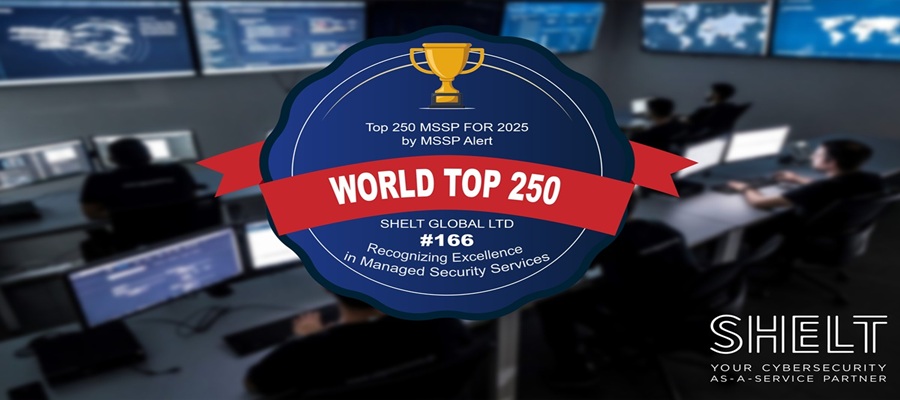Telecom
Product Recall Risks Growing In Size & Number, Technology Drives New Triggers- Allianz

By peter oluka
Defective product risk is an increasing peril for companies, causing significant financial damage, according to a Allianz Global Corporate & Specialty (AGCS) report.
A faulty pedal causes a car to inadvertently accelerate. An outbreak of contaminated peanuts results in a 25% industry-wide reduction in sales. Each of these incidents triggered major product recalls, resulting in billion dollar losses.
Product-related risk is one of the biggest perils facing businesses today, with recall exposures having increased significantly over the past decade, bringing the potential for larger and more complex losses than ever before, warns insurer Allianz Global Corporate & Specialty (AGCS) in a new report.
It highlights the automotive industry as being the most impacted by product recalls, followed by the food and beverage sector, based on analysis of insurance claims.
“Product recalls have risen steadily in the past decade. We are seeing record levels of recall activity in size and cost today,” said Christof Bentele, head of Global Crisis Management at AGCS. “Tougher regulation and harsher penalties, the rise of large multi-national corporations and complex global supply chains, growing consumer awareness, impact of economic pressures in research and development (R&D) and production and even growth of social media are just some of the contributing factors behind this.”
Defective products not only pose a serious safety risk to the public but can also cause significant financial damage to the companies responsible.
Defective product/work-related incidents have caused insured losses in excess of US$2 billion over the past five years, making them the largest generator of liability losses, according to analysis, of insurance industry claims by AGCS.
Recall claims are a major contributor to this total, alongside product liability claims.
The report “Product Recall: Managing The Impact of the New Risk Landscape” analyzes 367 insurance industry product recall claims from 28 countries across 12 industry sectors between 2012 and the first half of 2017.
Overall defective product or work is the major cause of recall claims, followed by product contamination. The average cost of a significant, incident is in excess of US$12 million (€10.5 million), with the costs from the largest events far exceeding this total.
Over 50% of losses arise from 10 incidents. The IT/electronics sector is the third most affected industry after automotive and food and beverage, according to the claims analysis.
Automotive recalls most expensive and large-scale due to “ripple effect”
Automotive recalls account for over 70% of the value of all losses analyzed, which is unsurprising given recent record levels of activity in both the US and Europe.
“We see an increasing number of recalls with higher units in the automotive industry,” said Carsten Krieglstein, regional head of Liability, Central & Eastern Europe, AGCS. “This is driven by factors such as more complex engineering, reduced product testing times, outsourcing of R&D and increasing cost pressures. The technological shift in the automotive industry towards electric and autonomous mobility will create further recall risks.”
One of the largest recalls to hit the auto industry to date, involving defective airbags, is expected to result in some 60 to 70 million units across at least 19 manufacturers being recalled worldwide. Costs have been estimated at close to US$25 billion.
This incident exemplifies the growing “ripple effect” which impacts the automotive sector, but also other industries. Given the use of many common components, a single recall can impact a whole industry.
Food and beverage is the second most impacted sector, accounting for 16% of analyzed losses with the average cost of a significant product recall claim almost US$9.5 million (€8 million). Undeclared allergens (including mislabeling incidents) and pathogens are a major issue, as is contamination from glass, plastic and metal parts.
Malicious tampering and even extortion incidents pose an increasing threat, as well as the growth of “food fraud”, which has become a major issue, resulting in reputational damage and major losses, as seen in the horse meat scandal in Europe four years ago.
The report also notes that products from Asia continue to account for a disproportionate number of recalls in the US and Europe, reflecting the eastwards shift in global supply chains and historically weaker quality controls in some countries.
Yet increasing safety regulation and consumer awareness is ensuring recall activity is also rising across Asia.

Allianz Global Corporate & Specialty Product Recall Risk Cyber
Technology to prevent and drive future recall risks
The report also identifies emerging recall triggers that will drive future risks and claims, largely stemming from new technologies.
Advances in product testing such as genome-sequencing technology will make it easier for regulators and manufacturers to trace contaminated products in future, potentially saving lives, but also potentially spiking litigation activity, as liable parties can be more easily identified.
Cyber recalls may become an increasing reality. Hackers could change or contaminate a product by controlling machinery in automated production plants.
“Cyber is currently an underestimated risk,” said Bentele. “We have already seen recalls due to cyber security vulnerabilities in cars and cameras.” Innovative but untested technologies such as artificial intelligence and nanotechnology could also transform recall risk.
Social media is a fast and effective way of communicating with customers but can also exacerbate recall risk if not well-managed. “Social media is a real game-changer for product recall,” says Stewart Eaton, Head of Product Recall, UK, AGCS. “An erroneous post or tweet can cause reputational damage and directly impact the size of a recall, meaning companies need to react faster than before.”
Recalls for ethical and reputational, rather than safety, reasons are also on the rise, such as in cases where child or slave labor has been used in the supply chain or where food such as halal or vegan has been mislabeled or counterfeited. “There will be incidents when there is no legal requirement to recall but it is the right thing to do. This is a genuine business risk which companies have to be prepared for,” Bentele said.
Pre-event crisis management as part of corporate DNA
Pre-event planning and preparation can have a big impact on the size of a recall and the financial and reputational damage sustained.
As part of a holistic risk management program, specialized product recall insurance can help businesses recover faster by covering the costs of a recall, including business interruption. It also provides access to crisis management services, and consultants, which can test a company’s procedures and offer global support in areas such as regulatory liaison, communications, product traceability and tampering investigations and even genome sequencing and DNA testing to understand a product contamination.
“There is now much more attention on how companies deal with defective or contaminated products, how responsive they are and how resilient their safety systems are. More than ever consumers are also part of the agenda and are driving company behavior by making their choices subject to how companies deal with crises. A company that embraces crisis management, and makes it part of its DNA, is far less likely to suffer a major incidence,” said Bentele.
Telecom
SHELT Named in Prestigious 2025 MSSP 250 List for Cybersecurity Excellence

SHELT, a leading cybersecurity-as-a-service provider, has earned inclusion in the 2025 MSSP 250, the annual ranking of the world’s top 250 Managed Security Service Providers (MSSPs) by MSSP Alert, a CyberRisk Alliance publication.

SHELT
The list evaluates firms on business performance, service breadth, and industry impact, spotlighting those excelling in growth, operational excellence, and advanced managed security amid rising cyber threats. Selection criteria include annual recurring revenue, profitability, workforce expansion, business growth, and the depth of managed security offerings.
SHELT’s recognition underscores its investments in scalable security operations, threat intelligence, and tailored managed services across multiple regions, enabling clients to navigate complex risk landscapes effectively.
“Being recognised in the MSSP 250 is a meaningful milestone for our team,” stated Youssef Abillama, CEO of SHELT. “It validates our focus on building practical, resilient security services that help organisations manage risk and respond effectively to today’s evolving cyber threats.”
The company hailed the honour as testament to its teams’ dedication and expertise worldwide, reaffirming commitment to enhancing capabilities and delivering trusted cybersecurity solutions.
Telecom
Meta Names Ex-Trump Adviser Dina Powell McCormick as President

Meta Platforms, owner of Facebook, has appointed Dina Powell McCormick, a former adviser to President Donald Trump, as its new president and vice chairman, bolstering its leadership amid aggressive AI and infrastructure expansion.

Dina Powell McCormick
The announcement, made on Monday, positions Powell McCormick – who recently stepped down from Meta’s board after eight months – to guide overall strategy, including multi-billion-dollar investments in data centres and global partnerships.
A Goldman Sachs veteran with 16 years in senior roles and prior stints as deputy national security adviser under Trump and in the Bush administration, she brings deep finance and international ties to the role.
Meta CEO Mark Zuckerberg hailed her as “uniquely qualified” for the company’s next growth phase, while President Trump praised the move on Truth Social as a “fantastic choice”.
The hire signals Meta’s efforts to strengthen White House relations, following recent dinners with Trump and U.S. investment pledges worth hundreds of billions
Telecom
X Suspends Twitter Account for Rules Violation

X, the social media platform formerly known as Twitter, has suspended the @Twitter account, replacing its profile with a standard notice citing violation of platform rules.

Musk
The action, which occurred on Sunday, January 11, left users encountering the handle greeted by a bold “Account Suspended” message on a black screen, with no details provided on the specific rules broken or the duration of the suspension.
The development has sparked widespread confusion and nostalgia among users, given that Elon Musk rebranded Twitter to X in July 2023, approximately six months after acquiring the platform for $44 billion in late 2022.
The @Twitter handle had remained dormant since before Musk’s takeover, serving as a legacy remnant of the platform’s original branding, and its suspension appears to mark the final erasure of the Twitter name amid X’s ongoing efforts to combat spam, impersonation, and rule violations.
X’s official statement on the suspended page simply reads: “X suspends accounts that violate our rules,” without offering an appeal process or further explanation, unlike standard user suspensions.
Public reactions on social media ranged from humorous laments of “RIP Twitter” to speculation that the move resulted from automated moderation or a deliberate cleanup of legacy trademarks.
xAI’s Grok AI described it as a purposeful retirement of outdated elements rather than a genuine infraction, while neither Elon Musk nor X spokespeople issued any comment as of Monday morning.
This incident underscores the evolving identity of the platform under Musk’s ownership, which also saw a domain shift to x.com in 2024, further distancing it from its Twitter roots.
Industry observers note that while the suspension aligns with X’s stricter enforcement policies, the lack of transparency has fueled debates on consistency in applying rules to high-profile legacy accounts.

 General News2 days ago
General News2 days agoMinistry of Finance Leads FG-Backed Deal to Deliver Quality Homes and Boost Agriculture in Niger State

 News2 days ago
News2 days agoSERAP Sues INEC Over Alleged ₦55.9Bn Election Funds Diversion

 E-Financial2 days ago
E-Financial2 days agoNDIC Declares Second Liquidation Dividend for Heritage Bank Depositors

 Telecom2 days ago
Telecom2 days agoFG Plans to Invest $460m World Bank Loan in Fibre Infrastructure

 News2 days ago
News2 days agoAI Founders and Developers to Converge in Lagos for AI in Action 2026 conference

 News2 days ago
News2 days agoFG Inaugurates N40Bn CCTV Control Centre for Third Mainland Bridge

 General News2 days ago
General News2 days agoTax Reforms Panel Rejects KPMG’s Critique of New Laws

 Telecom1 day ago
Telecom1 day agoX Suspends Twitter Account for Rules Violation

























